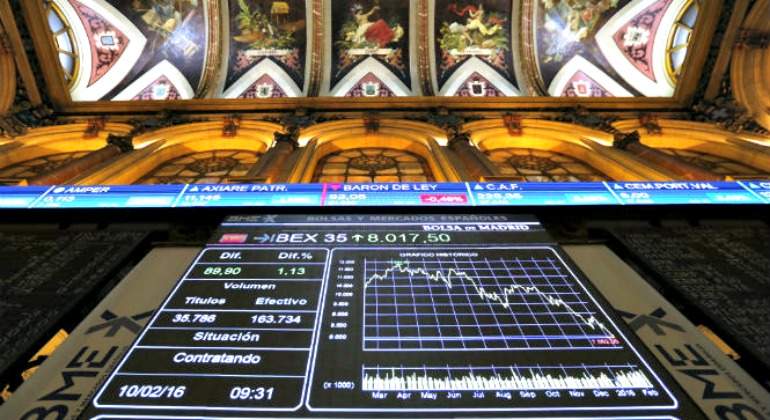The downward gap that the main European indices generated at the opening of the week (distance between Friday’s close and Monday’s opening) is now the resistance that must be overcome “so that we can talk about strength and so that risks are removed. bears to attend a major correction that could seek the minimum zone that marked the EuroStoxx 50 in May and last July around 3,800 / 3,900 points “, explains Joan Cabrero, strategist at Ecotrader .
For these gaps to be closed, the indices should be able to exceed the levels where they closed last week at the end of the week, for which the EuroStoxx 50 should exceed 4,130 points at the close of next Friday and in the case of the Ibex 35 it should close above the 8,760 and 8,850 points. “We are talking about waiting for the closing of Friday since these gaps were opened on a Monday and, therefore, they must have a weekly treatment,” he concludes.
“Over the next several weeks, and perhaps the next few months, Evergrande together with the Fed and the Delta variant will continue to create great volatility, and to some extent that volatility will be a buying opportunity,” observes Vasu Menon, strategist at OCBC Bank. Wealth Management.
The comment summarizes well what is being experienced this week in the markets, with doubts about the solvency of the Chinese real estate company Evergrande and the withdrawal of monetary stimuli as the main poles of concern, which was manifested mainly on Monday, prevailing the optimism of new in the last two sessions.
Evergrande calms the market
The real estate subsidiary of the Chinese group Evergrande has announced that it will pay the interest on a set of bonds traded through the Shenzhen Stock Exchange due in 2025. The announcement of the group’s main subsidiary comes at a time when Evergrande is in serious financial difficulties due to its liquidity problems and the large debts it will face in the coming months, something that has caused great uncertainty in global markets.
Added to this are the voices that are beginning to encrypt the impact of this situation. Li Daokui, a former adviser to the People’s Bank of China, has affirmed that the real estate crisis will slow down the Asian giant’s economic growth. “It is still too early to predict what the impact will be, but I would say that right now, according to my rough estimate, a basis point on GDP growth,” he said.
The oil rises
Futures that are traded on oil rose this Wednesday a little more than one percentage point and once again reached the maximum zone of the pandemic, above 75 dollars in the case of a barrel of Brent, a benchmark in Europe.
The increases are now supported by the reduction in crude inventories known this Tuesday in the United States, just to the general optimism about the situation of Evergrande collapse, and before the key meeting of the Fed.
Little movement in debt
Calm down in the debt market before the Fed offers a press conference from which details on tapering (withdrawal of stimulus) are expected. How and when bond purchases will be reduced will be the keys amid the tension introduced by the Evergrande collapse into the global financial system, although the great snowball of Chinese junk debt does not arrive until spring, which leaves room for China and the real estate to address it.
It also helps reassure that the United States Congress has made progress in suspending the debt limit, which is now facing harsh processing by the Senate. The Democrats’ bill, which faces Republican opposition, would keep the government funded until early December.
No changes from the BoJ
The Bank of Japan (BoJ) decided this Wednesday to keep its monetary policy unchanged, after evaluating positively the moderate recovery in the country and the progress of the Covid-19 vaccination for the normalization of economic activities.
At the end of its two-day monthly meeting, the monetary policy committee of the Japanese central bank decided by majority to maintain its ultra-flexible policy, based on a negative short-term interest rate (-0.1%) and an extensive purchase program. of government bonds and exchange-traded funds to keep 10-year bond yields around 0%.


